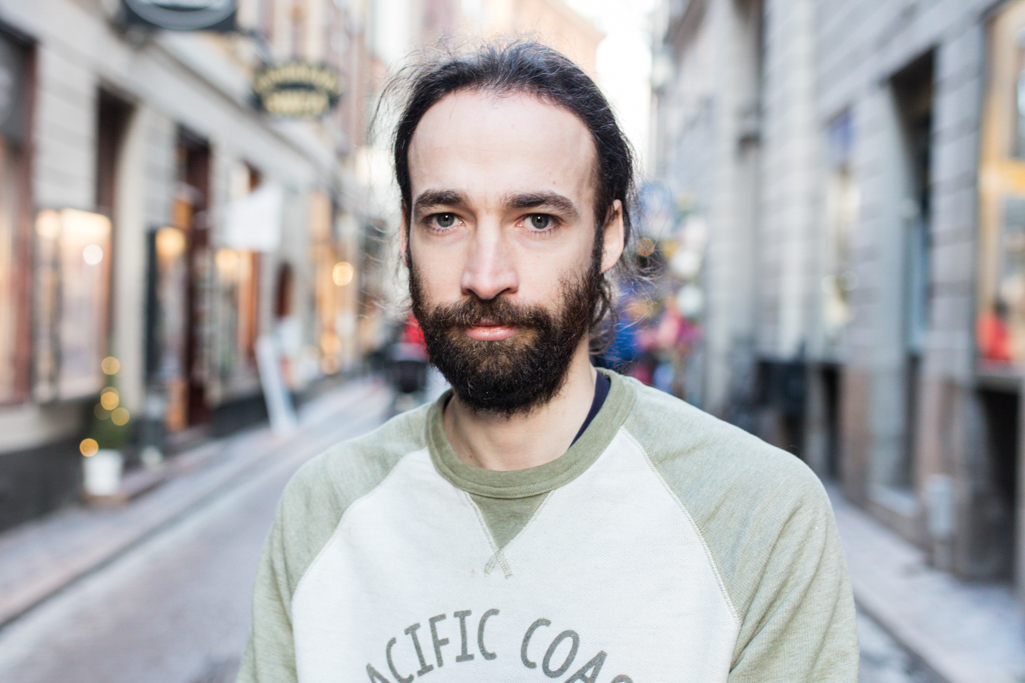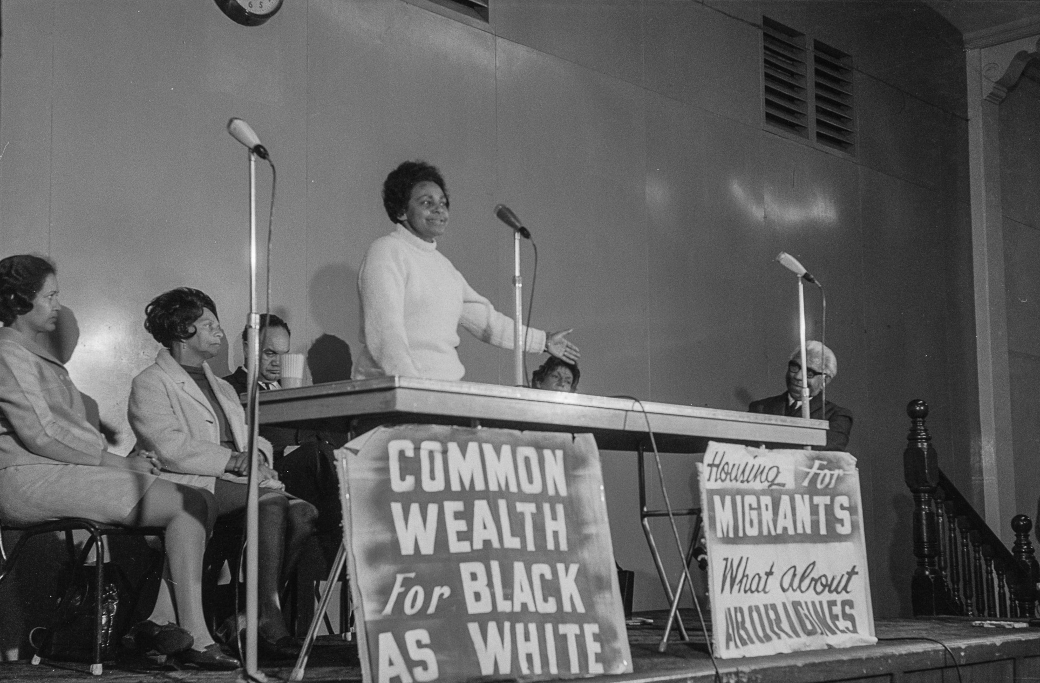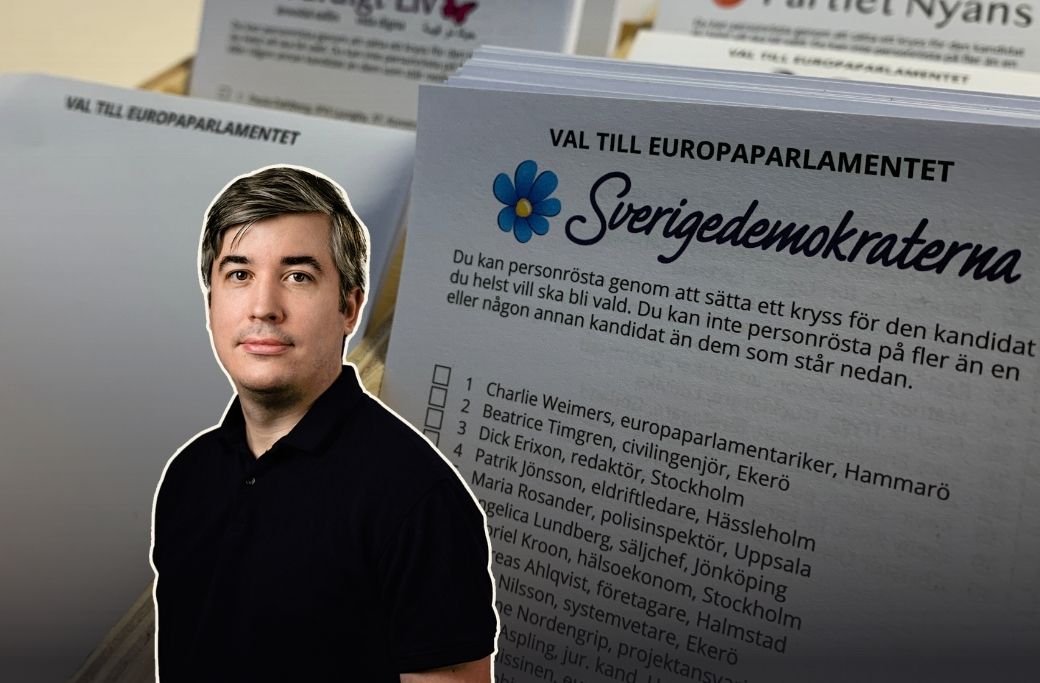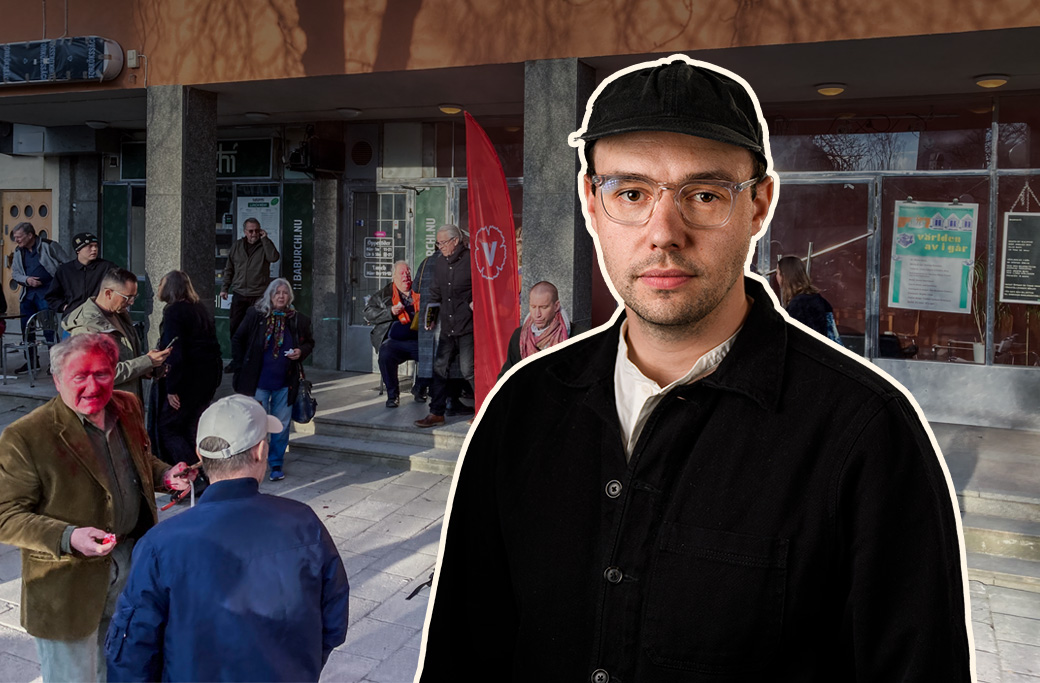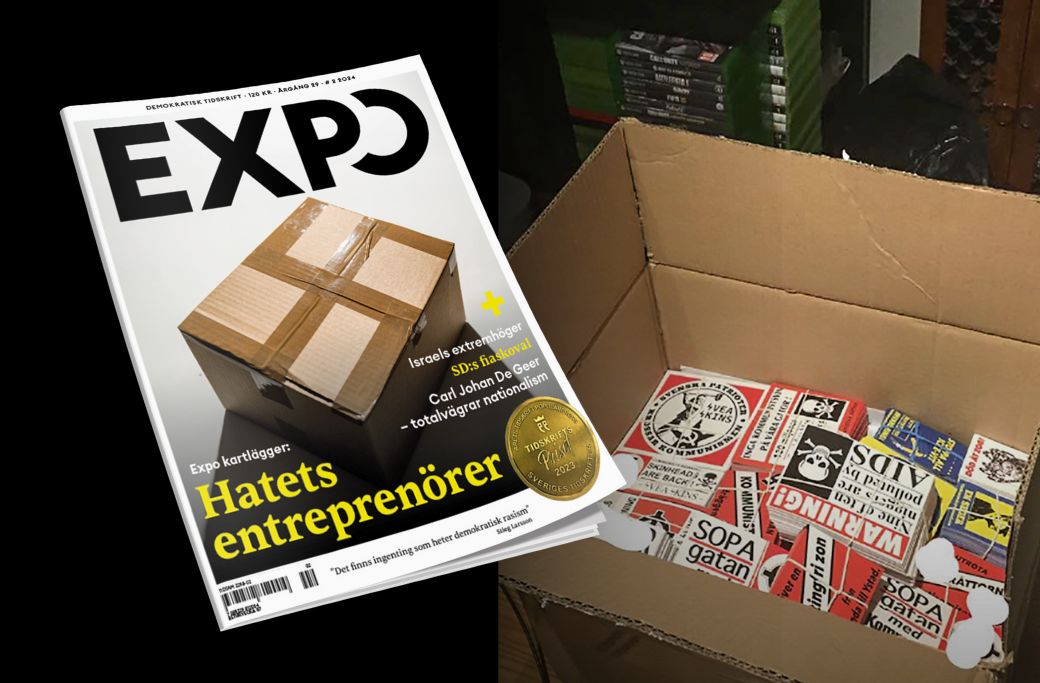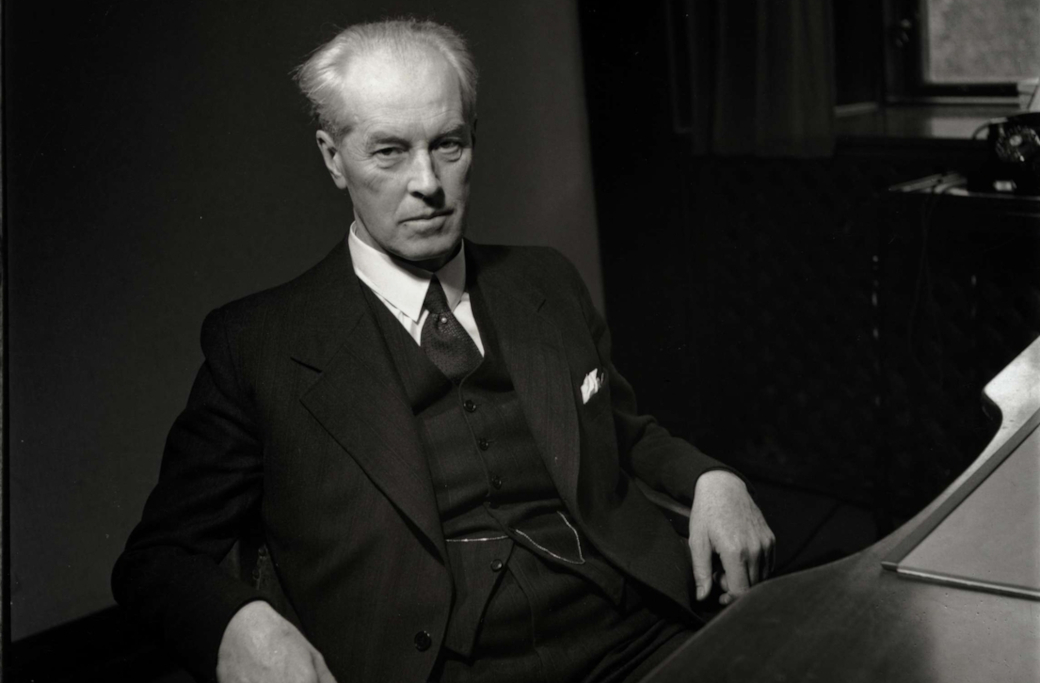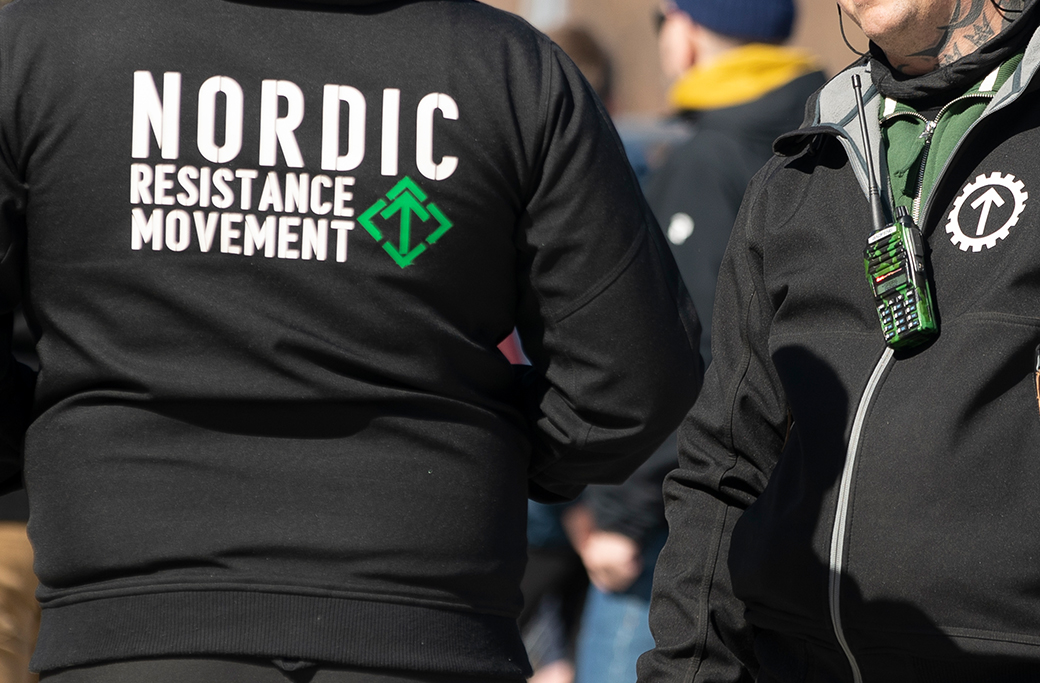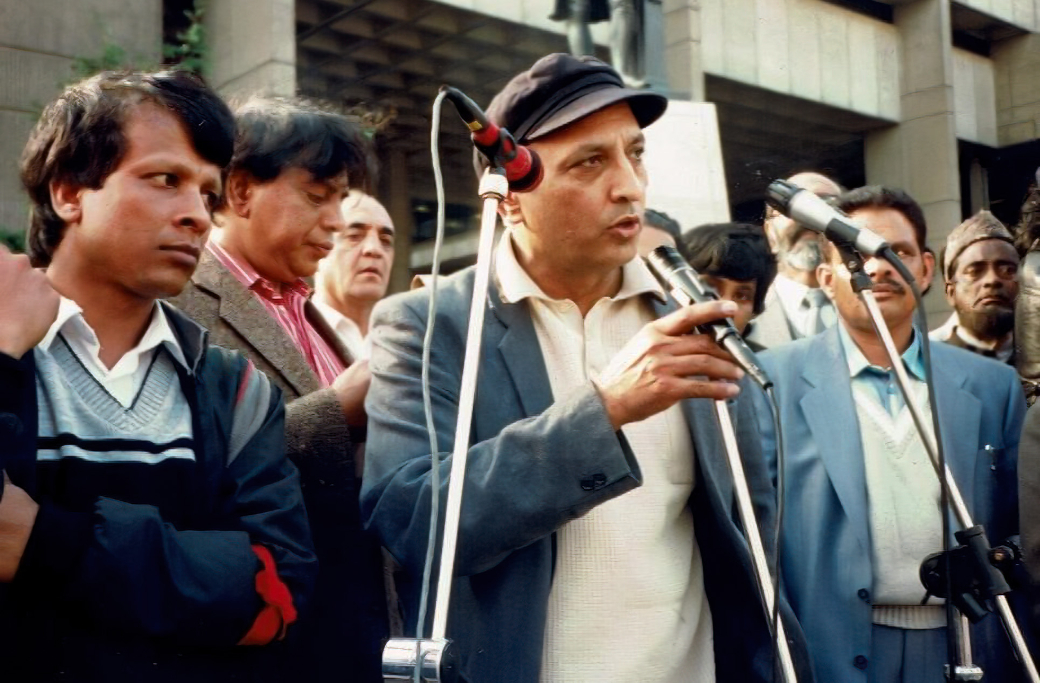
Woman in the picture: I was honouring Mandela
Tess Asplund placed herself right in the path of the nazis of the Nordic Resistance Movement who were marching in Borlänge, Sweden. ”I was honouring Nelson Mandela”, she tells Expo. The moment was captured in a snapshot by Expo’s photographer.
Uppdaterad: 2018-01-31, 07:25
Publicerad: 2016-05-03, 16:05
Lästid: 2 minuter
Du läser just nu gratis innehåll
Ditt stöd hjälper oss bekämpa rasism och främja demokrati genom granskning och kunskapsspridning.
On Sunday, hundreds of uniformed nazis marched in Borlänge, chanting "traitors of the people" as they went. But Tess Asplund stepped out right in front of them, staring down the nazi column.
"I was honouring Nelson Mandela. This is my struggle, and had they managed to intimidate me into silence they would have won," Tess Asplund tells Expo.
"I am a peaceful person. To me, the Nelson Mandela fist means freedom – freedom and peace. I am 5'3" tall and I weigh 110lb. I'm not big, but I wanted to show that one must dare," Asplund says.
"Mandela is my major role model. He stood for the equal value of all people. He spent 27 years in prison and when he got out he spoke of peace. He was an incredible man. He stands completely for peace and justice, for me he is a man of love," Asplund adds.
The photo by Expo's photographer, David Lagerlöf, has received major attention. Several national media outlets have reported on it, and it has gone viral on social media. Many are calling it the "picture of the year", and some compare it to the iconic photo usually referred to as "the lady with the handbag". That picture, taken by Hans Runesson 1985, shows a woman in the town of Växsjö attacking a marching member of the nazi Nordic Reich Party with her handbag.
Tess Asplund is stunned by the attention.
"What have David Lagerlöf and I done?" she jokes.
"For me it all happened so quickly. I went and stood there and then the police came and removed me. It only lasted a few seconds. I'm so surprised it's gotten this big."
Tess Asplund has been active in the struggle against racism for some time. Among other things, she is an activist for refugees' rights, and the spokesperson and deputy chairwoman of the organization Fokus afrofobi, a watchdog group against anti-black racism.
"We point out anti-black racism, but also racism in general. Antiracism has always been important to me. The normalization of anti-blackness has to stop. I feel like we are fighting so hard, but no-one hears us. People have to understand that it's not okay how black stereotypes are used in media, and the racism we face. We are sick of it," she says.
Translation: Morgan Finnsiö




